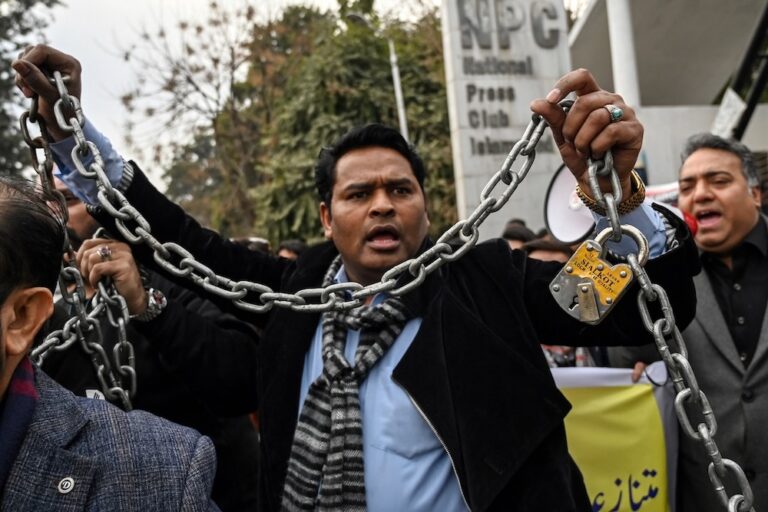(PPF/IFEX) – On 11 November 2004, journalist Munnawar Mohsin Ali, subeditor of the daily “Frontier Post”, was acquitted by the Peshawar High Court, in the North West Frontier Province. He had earlier been sentenced to life imprisonment for blasphemy. A two-member bench accepted Ali’s appeal and set aside his earlier conviction. On 8 July 2003, […]
(PPF/IFEX) – On 11 November 2004, journalist Munnawar Mohsin Ali, subeditor of the daily “Frontier Post”, was acquitted by the Peshawar High Court, in the North West Frontier Province. He had earlier been sentenced to life imprisonment for blasphemy. A two-member bench accepted Ali’s appeal and set aside his earlier conviction.
On 8 July 2003, Ali was convicted by an additional district and sessions judge and sentenced to life imprisonment and a fine of Rs50,000 (approx. US$840). The trial court had held Ali responsible for publication of a blasphemous letter in the 29 January 2001 issue of “The Frontier Post”. The journalist has been in detention since the letter’s publication. The case was registered by the then Information Department director, Mehdi Hussain, at West Cant police station under Sections 295 (A), (B) and (C) and 505 of the Pakistan Penal Code.
The High Court bench observed that the prosecution had failed to prove that the appellant had intentionally published the letter. The court said that the evidence on record proved that the appellant was not aware of the blasphemous letter’s contents. The court also observed that in his statement, Ali had clearly stated that he was a Muslim “and could not even think of committing such a crime.”
The blasphemous letter was purportedly written by a person named Ben DZec and appeared in the “Your Views” column of “The Frontier Post”. Following the letter’s publication, violent mobs set the newspaper’s office and other public property on fire, including a movie theatre.
The appellant’s counsel contended that the element of criminal intention should be seen in such offences. He referred to Sections 295 (A), 295 (B) and 295 (C) of the Penal Code, arguing that in the first two sections the words “deliberate”, “malicious intentions” and “wilfully” were mentioned. He added that unless the offence was committed with criminal intention, a person could not be held responsible for it.


